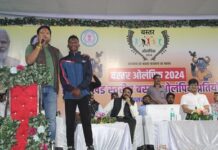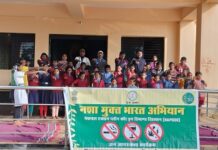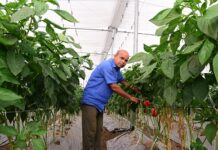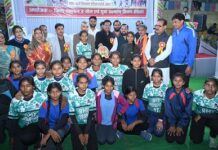A public health emergency was declared in New Delhi Tuesday as a choking blanket of smog descended on the world’s most polluted capital city. Arvind Kejriwal, the Chief Minister of Delhi, said his government is considering closing schools for a few days. “Every year, during this time of the year, Delhi becomes a gas chamber for almost a month,”Mr Kejriwal said in tweets, calling for a solution.
The Indian Medical Association declared an “emergency” as the US embassy website said levels of the fine pollutants known as PM2.5 that are most harmful to health reached 703 — well over double the threshold of 300 that authorities class as hazardous.
“We have declared a state of public health emergency in Delhi since pollution is at an alarming level,” the head of the Indian Medical Association (IMA) Krishan Kumar Aggarwal told AFP.
“Delhi authorities have to make every possible effort to curb this menace.”
The World Health Organization in 2014 classed New Delhi as the world’s most polluted capital, with air quality levels worse than Beijing.
Since then authorities have closed power plants temporarily and experimented with taking some cars off the road.
But on Tuesday many residents said too little was being done to tackle the scourge.
“It’s a recurring problem and we need to find a quick and permanent solution to it before it is too late,” said real estate agent Vipin Malhotra.
“Delhi is becoming unliveable, particularly for children, as the pollution has reached uncontrollable levels.”
Delhi’s air quality typically worsens ahead of the onset of winter as cooler air traps pollutants near the ground, preventing them from dispersing into the atmosphere, a phenomenon known as inversion.
Firecrackers set off to celebrate the Diwali festival of lights in the city add to the toxic mix created by pollution from diesel engines, coal-fired power plants and industrial emissions.
The problem is further exacerbated by the burning of crop stubble by farmers after the harvest in northern India, a practice that remains commonplace despite an official ban.
The IMA had earlier written to Delhi’s Chief Minister calling for the upcoming half marathon to be cancelled, saying the health the consequences for runners could be “disastrous”.
Running in such conditions could trigger asthma attacks, worsen lung conditions and increase the risk of heart attacks and strokes, it said.
On Monday telecoms giant Airtel threatened to pull its sponsorship of the event, due to be held on November 19, if authorities failed to improve the situation.
A report in the Lancet medical journal last month said pollution had claimed as many as 2.5 million lives in India in 2015, the highest in the world.
India’s Central Pollution Control Board said high levels of moisture in the air and a lack of wind meant emissions had become trapped in the environment.
“Total calm conditions, marked by the complete absence of wind, has led to the situation,” Dipankar Saha, a senior executive with the board, told the Press Trust of India news agency.
“The moisture has trapped emissions from ground-level sources.”
The hashtag #smog was the top trending topic on Twitter early Tuesday as angry residents demanded stronger measures to curb pollution.
“This is the state of air quality this morning in Delhi-NCR! Horrific!” posted one resident beside a picture of thick smog.
Unprecedented pollution levels this time last year forced schools to shut as authorities scrambled to contain the crisis.















